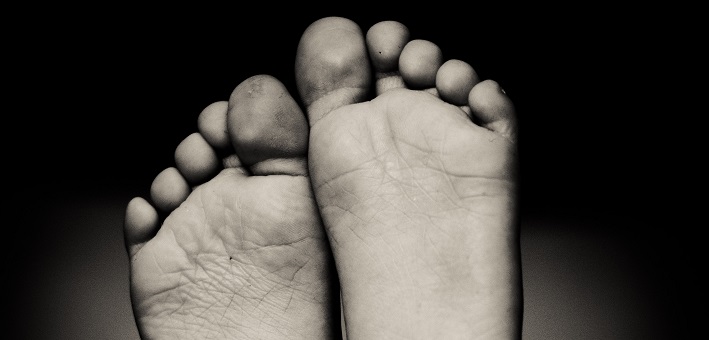Commentary on 1 Corinthians 11:23-26
Relay races are instructive for life. In a 4×100 relay race, each runner plays a particular role.
Though strategies will differ depending on the strength and composition (kinds of runners) on the team, typically, the first runner sets the pace. The baton is held in the right hand and passed off into the next runner’s left hand. The zone of exchange is the place where two runners meet, and the baton is passed. The second runner is usually a sprinter. While the third runner is often the slowest runner of the four, it is important to note that this runner is still competitive. The fourth runner, or the anchor leg, is likely the fastest. While each runner runs a different portion of the race, they all run the same distance. Their individual success is connected to the team’s success.
Like the body of Christ, each runner plays a unique but significant role for the team.
Like a relay runner, Paul is handing on to the Corinthian assembly what he has received as tradition. In 1 Corinthians 11:2, Paul states: “I commend you because you remember me in everything and maintain the traditions just as I handed them on to you.” Paul’s praise is followed shortly by his observation in verse 17. “Now, in the following instructions, I do not commend you because when you come together, it is not for the better but for, the worse.” The assembly of Jesus’s followers in Corinth is portrayed as a church with lots of problems.
The overwhelming message that Paul conveys in this letter is the promotion of unity. Paul writes to remind them that when they come together as a church and eat the Lord’s supper, it should not be like eating at home or like eating at a banquet. These verses serve as a reminder of what this tradition is and what it means.
Paul begins the story by taking the community back to a particular place and time—on the night; the Lord Jesus was being betrayed. In this brief utterance, Paul provides an essential detail for recalling the last few days of Jesus’ earthly ministry. This statement does more than set the stage of the ritual. It provides us with the important context of the meal.
While we know the story, that Paul’s retelling begins with the act of betrayal is noteworthy. Betrayal is more than deception. One has to be close to you in order to betray you. It is an intimate act, and it represents one of many ruptures in the text. There is a fracture in the community when they come together for a meal, and some go home hungry while others go home full and drunk. There is a rupture in the community when we are more concerned about what we wear (veiling our heads), but we show no concern for the conditions of our lives and our hearts. In some way, Paul is revealing how the Corinthians are betraying one another. Betrayal is revelatory; it unveils a division that we did not know previously existed.
However, betrayal is not the definitive moment of that evening. For on that night, Jesus was gathered with friends and followers. He gave thanks for a loaf of bread and broke it and said, “This is my body that is for you. Do this in remembrance of me.” While the sacramental significance of this text should be noted, it is also important to consider that here Paul is simply describing a tradition of gathering together for a meal to remember Jesus. Knowing what he is about to face and perhaps reminiscing on his time spent with those who have gathered, Jesus looks around and simply asks them to remember him. Eating together is another intimate act; it is the sharing of space and nourishment; it is also the sharing of ourselves with others in the most basic way. The table is a designated zone of exchange where this ritual is being established. This is often a place where we share stories, passing on what we have been given.
After the meal, Jesus takes a cup and again once asks them to remember him. Re-membering is an interruption, the act of putting the pieces back together again. It is an act of recollection and reconciliation. It is an opportunity to repair the breaks and the fissures, the divisions that have been created. Remembrance is knitting together the past with the present. Memory has a way of smoothing over the rough places. Jesus’ crucified body and shed blood remind us of the harsh and brutal realities of the consequences of his anti-imperial work. He did not want us to forget.
Jesus is doing more than passing the baton; he is establishing a new covenant. The agreement is that his followers will continue the work that he has begun. What is the work? It is the work of cultivating peace; it is the work of moving the world toward justice; it is the work of loving our neighbors and ourselves. The work will be difficult. They would need to remember him. We need to remember him, to remember the covenant. For as often as we come together and eat the bread and drink the wine, we proclaim the Lord’s death. It is not his life or resurrection but his death that we affirm.
What is a proclamation? It is an explicit or official declaration or announcement of something important. The significance of Jesus’ death must be remembered. Each time we proclaim the death of our Lord, we enter a zone of exchange; we have an opportunity for self-examination as well as an opportunity to share the gospel. How will we pass on what has been handed to us?
Maundy Thursday or Holy Thursday commemorates this meal, this last supper. This day reminds us that before Jesus was betrayed, he ate dinner with his followers and friends. The last supper with Jesus was the beginning of a new table fellowship for his followers. Death and memory are necessary companions. Establishing one’s legacy necessitates a recalling, a re-membering, a re-collection.
This day invites us to consider: How do we re-member the body of Christ? How will we put together such a wounded and broken people, individually and collectively? How do we remember Jesus?


April 1, 2021